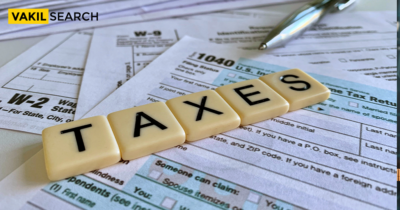What is Gujarat Professional Tax and how do you pay? Find out the information you need to know about Gujarat Professional Tax
Legal Aspects
The Gujarat Professional Tax (GPT) is a special, indirect tax levied on the taxable income of professional persons in the State of Gujarat. It was introduced in Gujarat by the Gujarat Professional Tax Ordinance, 2001. The Ordinance was amended in 2006 and 2009.
GPT is levied at a flat rate of 16%. It is payable by individuals who are residents of Gujarat, professionals who have an office or place of business in the State, and their spouses and dependents. The Ordinance defines a professional person as any person carrying on any business or profession, whether or not for profit.
Under GPT, professionals are required to register with the Income-tax Department and pay GPT based on their taxable income. The registration process is simple and can be completed online. There is no need to visit a tax office or file any forms. The Income-tax Department will send you a certificate confirming your registration. You then simply pay GPT online using your certificate as reference.
There are a few important things to keep in mind when paying GPT:
Earning Limits
The Gujarat Professional Tax Rules, 1957 prescribe a maximum earning limit for individuals who are liable to pay tax in Gujarat. The limit varies depending on the category of individual.
Individuals who are not engaged in any profession or business activities and whose total income does not exceed ₹2 lakhs per annum are exempt from paying tax in Gujarat.
Individuals who are engaged in profession or business activities and whose total income does not exceed ₹5 lakhs per annum are taxed at a rate of 25% of their total income. For individuals who have an annual income exceeding ₹5 lakhs, the rate of tax is 40%.
GET YOUR PROFESSIONAL TAX REGISTRATION
Individuals who are engaged in profession or business activities and whose total income exceeds ₹10 lakhs per annum are taxed at a rate of 50% of their total income. For individuals who have an annual income exceeding ₹10 lakhs, the rate of tax is 75%.
Taxable Income and Assets
Taxable income refers to all income that is subject to tax in India. This includes salary, wages, commissions, tips, bonuses, rental income, interest receivable, dividends and other forms of income.
The main source of taxable income for individuals is their earnings from employment or self-employment. However, there are a number of other sources of taxable income that are also governed by the Gujarat professional tax law. These include capital gains realized on the sale or transfer of assets such as stocks, property etc., monetary donations made to charitable organizations and inheritances received from deceased relatives.
Subject to certain exceptions, all forms of taxable income must be reported on an individual’s annual tax return (Form ITR). Failure to file a valid return can lead to penalties and/or criminal prosecution.
The Principal Types of Assets That Can Be Subject to Taxation
Employer’s Tax
As an employer, you are responsible for paying the appropriate taxes to the government of Gujarat. The following is a list of the most common employer taxes in Gujarat.
Employment Tax: This tax is levied on an employee’s basic salary and any other income received from work. It is based on a percentage of the employee’s salary. For example, if your employee earns ₹ 10,000 a month, you would need to pay ₹ 100 in employment tax every month. The total amount of employment tax payable in a year is capped at ₹ 12,000.
Pension Tax: This tax is levied on an employer’s pension contributions made to a pension scheme or individual retirement account (IRA). The amount of professional tax payable is based on the employer’s total annual pension contributions and is capped at ₹ 2,50,000.
Income Tax: An Employer must withhold income tax at the source from all taxable income earned by employees in Gujarat. Income tax rates vary depending on an employee’s marital status and whether they are resident or non-resident in Gujarat. The maximum income that an individual can earn without paying any income tax in Gujarat is ₹ 2 lakh per annum.
How to Calculate Tax on Salaried Persons?
The Income Tax Act, 1961 provides for a number of deductions from an employee’s income in order to arrive at the taxable income. The most important of these deductions are those for wages and salaries. The basic calculation used to calculate taxes on an employee’s income is as follows: Wages and salaries (including allowances) x 10% = Taxable income. In addition, there are other deductions that can be made, such as medical expenses, transportation costs, and pension contributions. It is important to keep track of all these deductions in order to properly calculate the taxes due.
Tax Returns, Challan and Refunds
In India, there are a multitude of state and federal taxes that an individual or business must pay. The most common of these taxes are the income tax, which is levied by the states, and the corporate tax, which is levied by the central government. There are also other taxes that businesses may have to pay, such as the sales tax or VAT.
When filing taxes in India, an individual or business must submit a tax return. This return contains information about an individual’s or business’ income and expenses for the year. In addition to the tax return, an individual or business may also need to submit a challan (a form used to collect taxes) and a refund request if they are entitled to one.
If an individual or business does not file a tax return, they may be subject to penalties and interest. Additionally, if an individual or business does not submit a correct challan/form/request for a refund, they may be subject to additional fines and penalties.
What Is Gujarat Professional Tax?
The Gujarat Professional Tax is a tax levied on professionals and other employees in the state of Gujarat, India.
Professional tax is charged at a rate of 10% of an employee’s annual income above ₹ 2 lakhs . The employer also pays a 2% service tax.
The main benefits of paying professional tax are that it allows professionals to keep more of their earnings, and it provides employers with additional sources of revenue.
Types of Gujarat Professional Taxes
The different types of professional taxes in Gujarat are mentioned below:
- Income Tax: This is the main and most important professional tax in Gujarat. The income tax rate for individuals is 10%. For companies, it is 12.5%. However, there are some exemptions and deductions that can reduce your liability.
- Service Tax: This tax is charged on services rendered by professionals such as lawyers, doctors, architects, accountants etc. It has a flat rate of 12%. However, there are some concessions available to certain sectors such as education and health.
- Professional Societies Tax: This tax is charged by professional societies like the Indian Medical Association or Bar Council of India. It is based on the membership dues of the society. The rate of this tax varies from society to society.
- Registration Fees: In order to practice their profession legally, professionals have to pay registration fees to government agencies like the police or registrar of companies. These fees vary from profession to profession and range from ₹ 500 to ₹ 50000 per year.
How to Pay the Gujarat Professional Tax?
The Gujarat Professional Tax is a tax levied on individuals who are registered as professional or experts in a particular field. The tax is assessed on an individual’s annual income and is payable by the end of the calendar year following the tax assessment. There are several ways to pay the professional tax in Gujarat: via online payment gateway, bank transfer, e- challan system or through cheque. It is important to note that if an individual does not pay the professional tax by the due date, they will be penalized with interest at a rate of 10% per month.
Also, Read:









